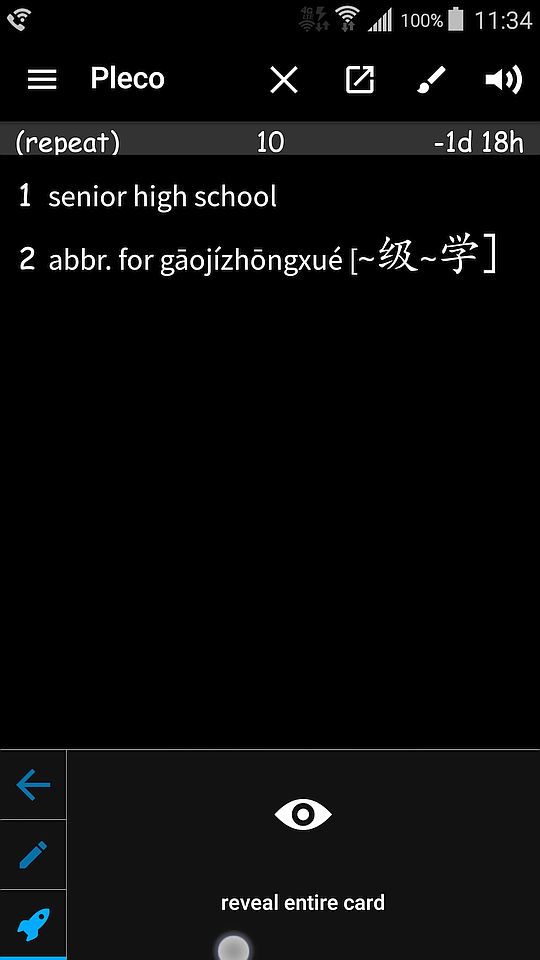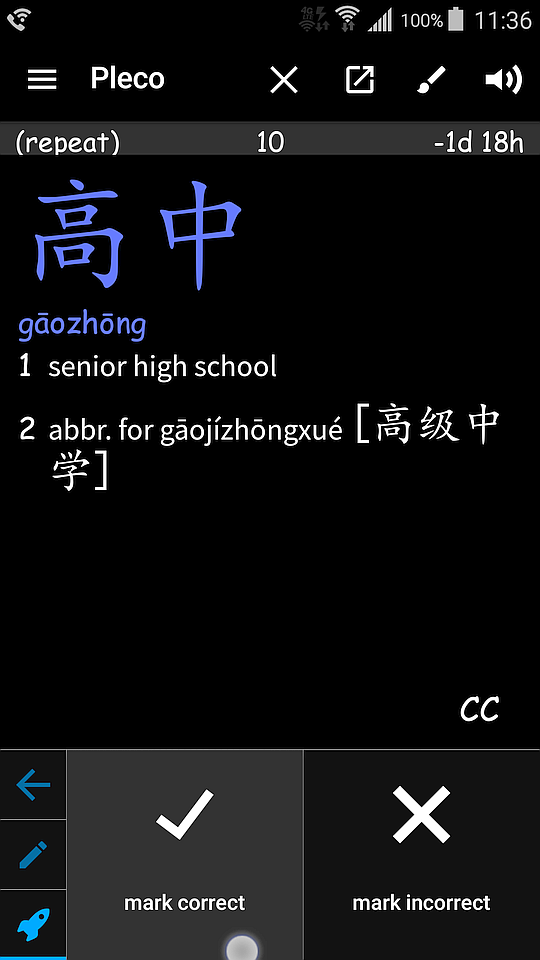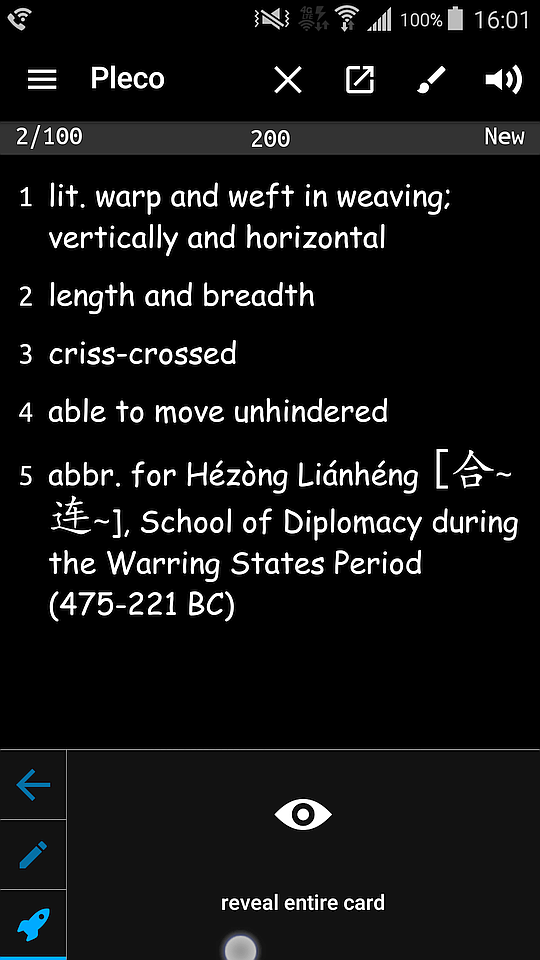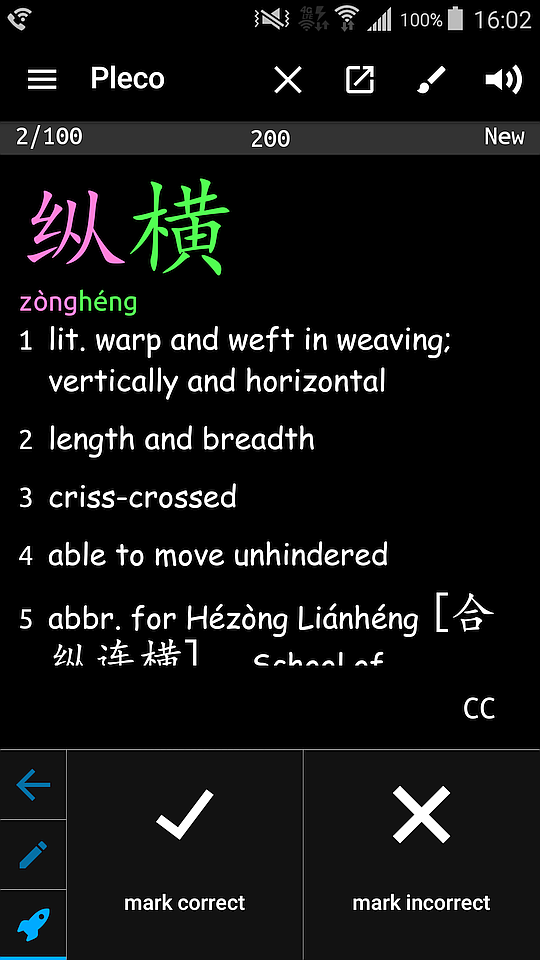NickF
秀才
I am extremely grateful for Pleco and thankful to the folks who have put this together. It's obvious that Pleco is, first and foremost, a labor of love.
At the risk of sounding like an unsatisfied jerk, and without the foggiest notion regarding feasibility, I'd like to mention a couple of ideas that I'd find to be useful enhancements. These ideas are all related to the Flashcard mode:
1) The ability to set the pinyin font size and style independent from the rest of the definition. I want to be able to make the pinyin text larger without affecting the rest of the definition.
2) To be able to select additional repetitions (besides just two) and to be able to set the time for those repetitions to occur. For instance, the user could select four repetitions of an incorrect word, and then choose for those repetitions to occur at 15 minutes, 30 minutes, 90 minutes, and 180 minutes.
3) When testing by showing the definition first and then revealing the characters, besides removing instances of the character from the definition, I'd like for Pleco to also remove occurrences of the pinyin.
If there are already ways of accomplishing these things, I'd be grateful for some instruction or to be pointed in the right direction for help. And THANK YOU to everyone involved!
At the risk of sounding like an unsatisfied jerk, and without the foggiest notion regarding feasibility, I'd like to mention a couple of ideas that I'd find to be useful enhancements. These ideas are all related to the Flashcard mode:
1) The ability to set the pinyin font size and style independent from the rest of the definition. I want to be able to make the pinyin text larger without affecting the rest of the definition.
2) To be able to select additional repetitions (besides just two) and to be able to set the time for those repetitions to occur. For instance, the user could select four repetitions of an incorrect word, and then choose for those repetitions to occur at 15 minutes, 30 minutes, 90 minutes, and 180 minutes.
3) When testing by showing the definition first and then revealing the characters, besides removing instances of the character from the definition, I'd like for Pleco to also remove occurrences of the pinyin.
If there are already ways of accomplishing these things, I'd be grateful for some instruction or to be pointed in the right direction for help. And THANK YOU to everyone involved!




